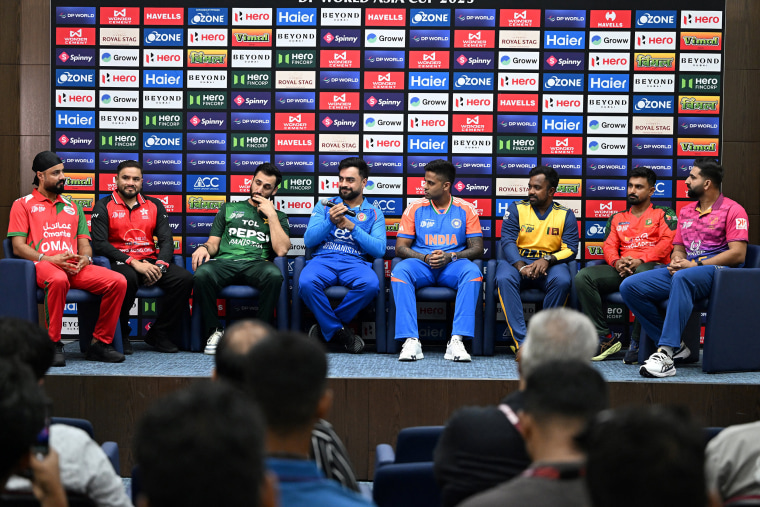Share this @internewscast.com
Due to political tensions, the two nations have rarely played against each other in recent years, Shah said.
Since late July, when the match was first announced, social media users in both countries have been calling for a boycott.
“There’s no use in wasting time on the India vs Pakistan match,” commented a typical user on X, among over 27,000 discussions about the game as noted in the platform’s trending section on Friday.
Shah said that hundreds of millions of people would still watch the match, adding that “the financial value of this game is still massive.”
“Twenty-seven thousand tweets are insignificant,” he remarked during a phone conversation from Pakistan. “I’m confident that this isn’t the prevalent opinion, nor do I believe it will impact the viewership numbers for the match.”
According to ticketing platform Platinum List, as of Friday, premium tickets for the game ranging from $212 to VIP options near $4,500 were still available. Typically, encounters between India and Pakistan are completely sold out well ahead of time.
In February, an India-Pakistan match during the Champions Trophy in Pakistan resulted in 26 billion minutes of TV viewing alone, reported the International Cricket Council (ICC), the global cricket governing body. This figure exceeded the 19.5 billion minutes from their match during the ICC Cricket World Cup in 2023.
Although the Champions Trophy occurred before this spring’s terrorist attack and armed conflict, India’s games were held in Dubai as the Indian team did not agree to play in Pakistan.

Supporters from both India and Pakistan have varied emotions concerning the Sunday match.
Vidya Mansinghani, a 30-year-old graphic designer from Mumbai, India’s commercial capital, said she would normally have hosted a watch party with friends and cousins, but decided against doing so this time due to differing views within her social circle. Still, she’ll be watching from home.
“I am a patriot, and what happened in Pahalgam was extremely painful,” Mansinghani said, referring to the April terrorist attack in Kashmir.
“But at the same time, cricket is part of our culture. I just don’t feel it’s right not to support our own players,” she added.
Harris Arshad, 29, a project manager from Islamabad, the capital of Pakistan, said he would be watching Sunday’s grudge match despite the calls for a boycott.
The match “should proceed despite tensions, as sports can bridge divides and promote goodwill,” Arshad said, adding that the neutral venue “ensures safety.”
“Canceling would harm cricket’s spirit and set a poor precedent for international events amid political issues.”










